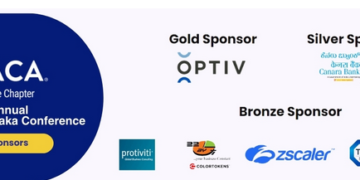Tuesday, January 19, 2021
On Jan. 15, 2021, a federal court issued a preliminary injunction in favor of the United States and against Jeffrey and Lauren Lowe, Greater Wynnewood Exotic Animal Park LLC, and Tiger King LLC based on claimed violations of the Endangered Species Act and the Animal Welfare Act.
U.S. District Court Judge John F. Heil III ordered the Lowes to immediately surrender all Big Cat cubs under the age of one year and their mothers to the government for the pendency of the injunction. The court also ordered the defendants to retain an attending veterinarian and to provide records accounting for all animals acquired and disposed of since June 2020. The court further ordered the defendants and anyone acting on their behalf, including Eric Yano and Stephens Lane LLC, to cease exhibiting animals without a valid U.S. Department of Agriculture (USDA) license.
“The Lowes have showed a shocking disregard for both the health and welfare of their animals, as well as the law,” said Acting Assistant Attorney General Jonathan D. Brightbill of the Justice Department’s Environment and Natural Resources Division. “We are gratified the court agrees and ordered Mr. Lowe to stop ignoring his obligations under the Animal Welfare Act and the Endangered Species Act.”
“This decision sends a clear message to both licensed and unlicensed exhibitors of the Animal Welfare Act’s reach,” said USDA Acting General Counsel Tyler S. Clarkson. “USDA looks forward to continuing its close partnership with the Justice Department to litigate these cases and enforce the Animal Welfare Act.”
The court found that the Lowes’ failure to provide safe conditions, proper nutrition, and timely veterinary care resulted in harm to a number of animals, including the death of two tiger cubs less than a week apart. Such evidence indicated that the defendants’ remaining Endangered Species Act protected animals are at risk of harm and convinced the court to grant the government’s motion for temporary restraining order and motion for preliminary injunction. The court also found that the defendants’ pattern and practice of providing substandard care and their failure to employ a qualified attending veterinarian placed the health of the defendants’ animals in serious danger under the Animal Welfare Act, requiring injunctive relief. Although long authorized by statute, this case marks the first time that the government sought civil judicial injunctive relief under the Animal Welfare Act.
The court was not persuaded by the defendants’ argument that they were not “exhibitors” under the Animal Welfare Act because the zoo was still under construction. The court found that the Lowes’ prior licensure and exhibition of animals, promoting Tiger King Park’s grand opening, making their animals available to the public through online platforms for compensation, and allowing camera crews onto the property to film for a show to appear on Netflix constituted “exhibiting” as contemplated by the Animal Welfare Act.
Trial attorneys from the Environment and Natural Resources Division’s Wildlife and Marine Resources are handling the case. They are assisted by attorneys from the Civil Division of the U.S. Attorney’s Office for the Eastern District of Oklahoma. The case is being investigated by USDA’s Animal Plant and Health Inspection Service and the Department of the Interior’s Fish and Wildlife Service.
The case is United States v. Lowe, et al., No. 20-423 (E.D. Okla.).









































